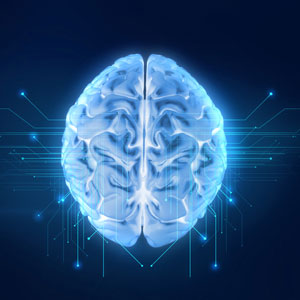The Spinal Cord is Smarter Than We Thought
 The Central Nervous System consists of the brain and the spinal cord. There is a perception that the brain does the majority of the controlling work with the spinal cord simply being a conduit for nerve messages. This concept has been challenged in recent years by a growing body of research.
The Central Nervous System consists of the brain and the spinal cord. There is a perception that the brain does the majority of the controlling work with the spinal cord simply being a conduit for nerve messages. This concept has been challenged in recent years by a growing body of research.
A study published in Nature Neuroscience reveals how the spinal cord is able to process and control complex functions that were previously thought to be controlled by the cerebral cortex in the brain.
Researchers demonstrated shown that the spinal cord is able to process and control complex functions, like the positioning of your hands in external space. This kind of hand control requires sensory inputs from multiple joints and these inputs was previously thought to be processed and converted into motor commands by the brain.
They measured the time that it took for the muscles in the hands to respond to stimulus and whether these responses returned them to the original position. By measuring the lag in the response, they were able to determine whether the processing was happening in the brain or the spinal cord. The responses happened so quickly that only place that
they could be generated from is the spinal circuits.
“This research has shown that a least one important function is being done at the level of the spinal cord and it opens up a whole new area of investigation to say, what else is done at the spinal level and what else have we potentially missed in this domain?”
ANDREW PRUSZYNSKI, Ph.D.
A.Pruszynski I. Weiler, E. Gribble, “Spinal stretch reflexes
support efficient hand control” Nature Neuroscience, Feb 11, 2019
CONTACT US
Proper spinal function can help balance a key component of the body, the autonomic nervous system, which regulates many aspects of health from blood pressure, heartbeat and breathing, digestive function, and controlling stress levels.
EUROPEAN SPINE JOURNAL
Lenoir, N. Guedj, P. Boulu, P. Guigui, M. Benoist
Camptocormia: the bent spine syndrome, an update. European Spine Journal. 2010 Aug;19(8):1229-37
